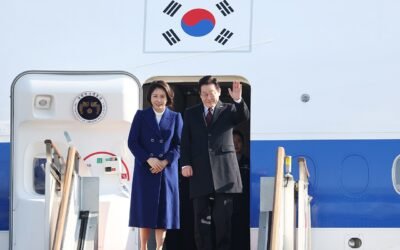The political situation—with the same party responsible for the past human rights abuses still controlling the legislature—delayed transitional justice. Problems still remain today.
by Tsai Cheng-An
Article 6 of 7.
Read article 1, article 2, article 3, article 4, and article 5.
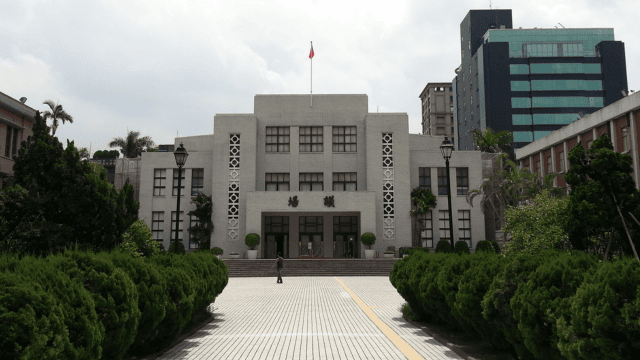
In many ways, Taiwan’s post-Martial-Law political trajectory mirrored that experienced by Latin American and Eastern European countries in the post-Cold-War era. Taiwan was ruled by an authoritarian regime that maintained a firm grip on power by repressing and stifling dissent through complete control of society. In the 1990s, with the passage of time and the strengthening of democratic institutions, the international community, with the help of the Office of the United Nations High Commissioner for Human Rights (OHCHR), promoted a democratic trajectory in the countries that were once ruled by one-party systems or dictators. Both in Latin America and Eastern Europe the problem of transitional justice was addressed by the former non-democratic countries.
Compared with these international developments, Taiwan’s post-Martial-Law approach to transitional justice was somewhat different. In 2008, Taiwan achieved its second rotation of ruling political parties, as the presidency had gone first from the Kuomintang (KTM) to the Democratic Progressive Party (DPP) in 2000, and now went back from the DPP to the KTM. Yet, there was no dedicated body to deal with transitional justice, and the achievements of the government and the private sector in this area remained quite limited. Taiwan would have needed compensation for the victims of the authoritarian regime, a comprehensive serious investigation of historical truth, and of the legal and moral responsibility of those guilty of human rights violations. All this would have been needed to restore the citizens’ trust in the institutions. However, no positive and clear action was taken.
Both the DPP and KMT administrations still limited accountability or the possibility of prosecution to abuses committed during the Martial Law period, excluding those perpetrated after 1987. This happened because a KMT-led coalition was still in control of the Legislative Yuan (Taiwan’s Parliament) from 1987 to 2016, and was reluctant to promote transitional justice targeting wrongdoings the same party had committed in the past. With this historical burden, the KMT government’s first post-transition legislation specifically addressing past abuses was the 1995 bill to restore the rights of individuals damaged during the Martial Law era. In its scope of application, as summarized by historian of Chinese law Ernest Caldwell, the Act was limited to “individual cases occurring during the period between May 20, 1949, and July 14, 1987, in which the defendants were either charged but found not guilty in courts-martial or were found guilty but can subsequently prove their confessions were coerced.”
The second major part of the transitional justice judicial legislation passed by the KMT-dominated legislatures was the Incident Handling and Compensation Act of 28 February 1995. This bill specifically targeted the victims of the “228 incident,” the violent repression of anti-government protests that started on February 28, 1947, and left tens of thousands dead. This was reflected in the first article of the Act, which provided the basic principle of “making citizens understand the truth of the [228] event, healing historical wounds, promoting national unity and harmony,” and also established a timetable for compensation. The Act, in Caldwell’s words, created a system “to provide the restitution of honor for victims or the descendants of those killed, wounded, tortured, detained, or imprisoned, and compensation for individuals or their families who had property damaged or confiscated during the period of state-sanctioned violence.”

The last important piece of transitional justice legislation passed by the KMT-dominated legislature was a 1998 Act on compensation for improper trials based on trumped up sedition and espionage charges during the period of Martial Law. According to Caldwell, “this Act was the direct result of public dissatisfaction with the KMT government and legislature’s lack of efforts to properly address the abuses occurring during the White Terror period. However, despite the public pressure for more comprehensive transitional justice legislation, the 1998 Compensation Act follows the KMT’s trend of legislating compensatory acts while precluding any inquiries over the legitimacy of KMT rule or assigning any liability to specific individuals.”
The DPP won two presidential elections, in 2000 and 2004, but a KMT-dominated coalition kept its majority in the Legislative Yuan. As a result, Caldwell concluded, “Chen Shui-Bian’s two terms in office were fraught with persistent policy gridlock between the DPP-held executive and KMT-held legislature, with the latter opposing nearly all government proposals requiring legislative approval.”
With President Ma Ying-Jeou, who was elected twice in 2008 and 2012, the KMT came to control again the presidency, the government, and the legislature at the same time. No formal transitional justice legislation was completed during Ma’s two terms in office. In 2009, however, under President Ma, the Legislative Yuan ratified the International Covenant on Civil and Political Rights (ICCPR) and the International Covenant on Economic, Social and Cultural Rights (ICESCR), and passed the Law on the Implementation of the Two Conventions.
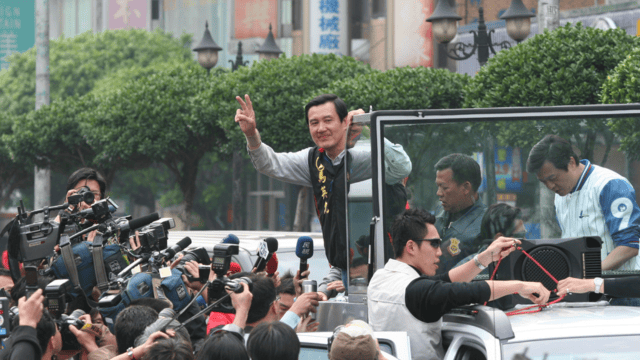
In 2013, ten international human rights experts were invited to Taiwan to conduct a review of human rights there. In the 81 “concluding opinions and suggestions” published, nos. 24 and 25 specifically pointed out the issue of promoting transitional justice in Taiwan and put forward specific suggestions. After the meeting, President Ma held an international press conference and promised to implement the expert recommendations, and the ideal of “governing the country by human rights.” However, this commitment was not followed by effective action.
In 2009, Taiwan had adopted the two conventions as its domestic law, with the ultimate goal of strengthening its comprehensive human rights protection mechanism. This should have provided an opportunity for Taiwan to be more responsible for human rights issues, and further strengthen the protection of human rights enjoyed by Taiwanese citizens. In particular, the ICCR in paragraph 3 of article 2 asks the states “(a) To ensure that any person whose rights or freedoms as herein recognized are violated shall have an effective remedy, notwithstanding that the violation has been committed by persons acting in an official capacity; (b) To ensure that any person claiming such a remedy shall have his right thereto determined by competent judicial, administrative or legislative authorities, or by any other competent authority provided for by the legal system of the State, and to develop the possibilities of judicial remedy; (c) To ensure that the competent authorities shall enforce such remedies when granted.”
Therefore, Taiwan’s adoption of the ICCPR raised the question how to properly correct and remedy human rights abuses related to the authoritarian rule of the KMT.
During her 2016 presidential campaign, DPP candidate Tsai Ing-Wen included issues of transitional justice in her platform. She had long promised to apologize to Taiwan’s aboriginal people on behalf of the government and, more generally, to “face the past and do everything possible to restore the historical truth.” Tsai won the presidency with 56.1% of the vote, and the DPP won a legislative majority for the first time in Taiwan’s democratic history. As Caldwell reports, “In her inaugural speech, President Tsai reiterated the importance of transitional justice for Taiwan as a society to move forward. She stated that ‘the goal of transitional justice is to pursue true social reconciliation, so that all Taiwanese can take to heart the mistakes of that era.’ Throughout the speech, the scope of transitional justice was clearly expanded to reflect society’s palpable discontent with the limited scope and time frame of the KMT legislation.”
Tsai’s inaugural address, which set out the goal of making investigations and pursuing the truth as a key mechanism for social reconciliation, also marked a departure from past practices, with special emphasis on Taiwan’s democratic transition and historical justice.

In July 2016, Tsai and the DPP government introduced the “Act Governing the Handling of Ill-Gotten Properties by Political Parties and Their Affiliate Organizations,” and set up the CIPAS (Committee on Ill-Gotten Party Assets Settlement) to investigate and deal with property illegally acquired by the KMT and its affiliated organizations from August 15, 1945, to July 15, 1987. The Act was only passed on 5 December 2017, and on May 31, 2018, a Transitional Justice Commission (TJC) with a larger mandate than CIPAS was established, to deal with all issues relating to legal files, despotic decisions, and wrongful convictions during the period between August 15, 1945, and November 6, 1992.
Article 6 introduced a so-called overlord clause, which allowed to go beyond the existing legal framework of criminal law and administrative law to revisit unjust decisions and establish an effective relief mechanism to deal with the injustice and violation of human rights left over by the previous authoritarian governments. Enforcing this article, by March 26, 2021, the TJC had cancelled a total of 5,837 criminal decisions of the Martial Law period, and started the corresponding proceedings for reparation, realizing the most important spirit of the transitional justice, “rehabilitating the reputations.”
CIPAS completed part of its mission in June 2019 with the establishment of an online database of property related to Taiwan’s political parties, which included 30 “significant cases” and 1,896 other cases. The TJC has an even more difficult task, to investigate issues related to Taiwan’s authoritarian past. The TJC is responsible for three main issues :(1) providing public access to political archive records; (2) removing signs of authority and preserving places where injustices occur; (3) correct judicial errors, restore historical truth, and promote social reconciliation.
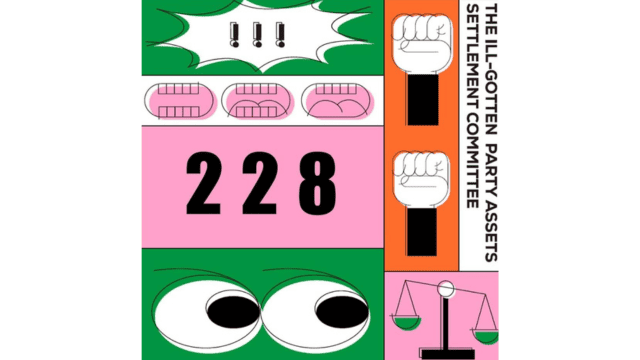
Comparing the scope of the transitional justice legislation in the KMT era and the DPP era, the difference is obvious. As long as the KMT retained an elected majority in the legislature, it could directly control the official position on transitional justice. Thus, the transitional justice legislation of the KMT emphasized reparation and limited recognition, while excluding any consideration of criminal responsibility, personal responsibility, or the need for amnesty. Since the DPP first opened up the scope of transitional justice legislation when it won a legislative majority after two decades of KMT rule, the DPP legislation sought to fill gaps in accountability, knowledge, and financial issues with specific legislative language.
However, not everyone was happy with the DPP’s transitional justice legislative agenda. Like the KMT’s legislation, the DPP’s bill also included measures to limit the applicability of transitional justice. Both the 2016 Improper Property Act (The Act Governing the Settlement of Ill-gotten Properties by Political Parties and Their Affiliate Organization) and the 2017 Act on Promoting Transitional Justice are limited in time to the period from 1945 to 1992, excluding any consideration of the need for transitional justice for victims of human rights abuses that occurred after 1992. In short, although President Tsai won international recognition for her efforts to promote transitional justice, it is my conclusion that under her successor Taiwan still has work to do in this respect.
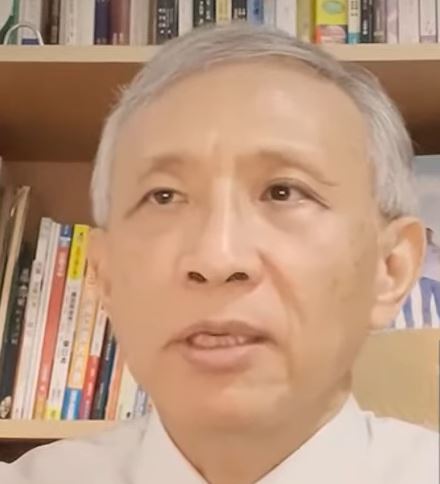
Tsai Cheng-An received his Ph.D. in Technology Management from National Chengchi University and his MS in Industrial Engineering from National Tsinghua University in Taiwan. He teaches innovation management, business model analysis, and new business development strategies at Shih Chien University, Taipei, Taiwan. Prior to his academic career, he had 18 years of practical experience in the industry, and his research interests are in decision making, business model innovation, and corporate entrepreneurship, as well as in the area of transitional justice and freedom of religion or belief. He has published in the International Journal of Entrepreneurial Behaviors & Research (SSCI), Technology Analysis and Strategic Management (SSCI), Logistics (SCIE), Management Review (TSSCI), Journal of Management (TSSCI), Sun Yat-sen Management Review (TSSCI), Journal of Science and Technology Management (TSSCI) and Forum for Industry and Management (TSSCI).

